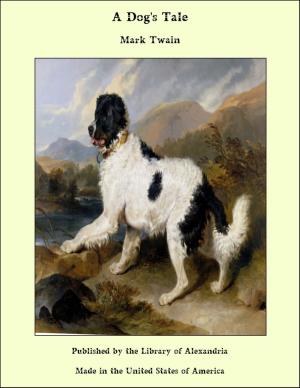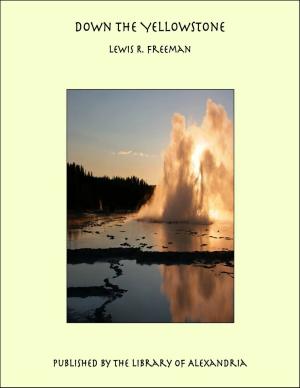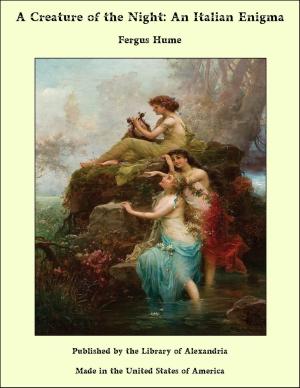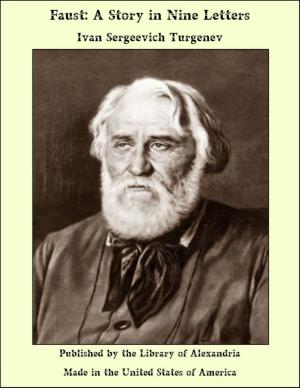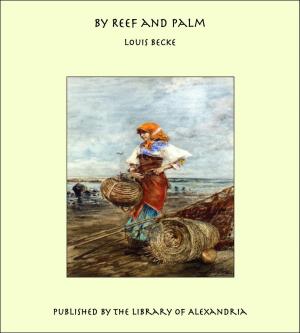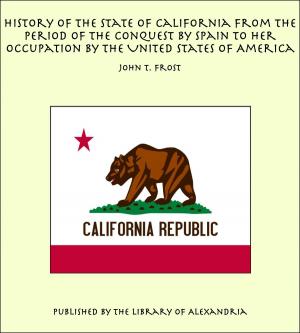The Cryptogram: A Story of Northwest Canada
Nonfiction, Religion & Spirituality, New Age, History, Fiction & Literature| Author: | William Murray Graydon | ISBN: | 9781465614742 |
| Publisher: | Library of Alexandria | Publication: | March 8, 2015 |
| Imprint: | Language: | English |
| Author: | William Murray Graydon |
| ISBN: | 9781465614742 |
| Publisher: | Library of Alexandria |
| Publication: | March 8, 2015 |
| Imprint: | |
| Language: | English |
I have long had in mind to set down the story of my early life, and now, as I draw pen and paper to me for the commencement of the task, I feel the inspiration of those who wrote straight from the heart. It is unlikely that this narrative will ever appear in print, but if it does the reader may rely on its truthfulness and accuracy from beginning to end, strange and incredulous though parts of it may seem. Thirty years ago! It is a long time, but the magic power of memory laughs at wider gulfs. Every incident comes back to me with the vividness and clearness of yesterday. I hear the echo of voices that have been silent these many years. Dead faces, some smiling and some looking fierce-haired, take dim shape in the corners of the room. Beyond the open window, where birds are twittering in the overhanging ivy, an English landscape of meadow and woodland, hills and hamlets, rolls far in the sunshine of a June morning. It is the year 1846, in the reign of her gracious majesty, Queen Victoria. I close my eyes, and I am back in another world. I see the Great Lone Land--its rivers and lakes, its plains and peaks, its boundless leagues of wilderness stretching from sea to sea. I sniff the fragrant odors of snow-clad birch and pine, of marsh pools glimmering in the dying glow of a summer sun. I hear the splash of paddles and the glide of sledge-runners, the patter of flying moose and deer, and the scream of the hungry panther. I feel the weird, fascinating spell of the solitude and silence. The Great Lone Land! Truly, to those who have known it, a name to conjure with! As it was then so it remains to-day, that vast, mysterious, romantic realm of the Canadas. The territory of the Hudson Bay Company, chartered remotely and by royal warrant when Charles II was king; the home of the Red Indian and the voyageur, the half-breed trapper and hunter, the gentlemen adventurers of England, Scotland and France; a land of death by Indian treachery and grizzlies, starvation and freezing, snowslides and rapids; a mighty wilderness, with canoes and sledges for the vehicles of travel and commerce, and forest trails joining the scattered trading posts. There I, Denzil Carew, was born. There was my home from the cradle to manhood, and there my story lies. In that wild country I was nurtured and bred, schooled in the lore of the woods, taught to shoot and swim, to bear fatigue and to navigate dangerous waters. Nor did I grow up in ignorance of finer arts, for my father, Bertrand Carew, was an Englishman and a gentleman, and he took pains to give me the benefit of his own education and culture. Who his people were, or what had brought him out to the Canadas, were things he never told me. My mother was the daughter of a company factor in charge of Fort Beaver. I do not remember her, for she died when I was a year old. At the factor's death my father succeeded to the post, and ten years later he was killed by a treacherous Indian. Fort Beaver was then abandoned, a new post having been recently built, seventy miles farther north. This was Fort Royal, on the Churchill River, one hundred miles south of Hudson's Bay, and I went there as assistant factor--I had already worn the company's uniform for three years.
I have long had in mind to set down the story of my early life, and now, as I draw pen and paper to me for the commencement of the task, I feel the inspiration of those who wrote straight from the heart. It is unlikely that this narrative will ever appear in print, but if it does the reader may rely on its truthfulness and accuracy from beginning to end, strange and incredulous though parts of it may seem. Thirty years ago! It is a long time, but the magic power of memory laughs at wider gulfs. Every incident comes back to me with the vividness and clearness of yesterday. I hear the echo of voices that have been silent these many years. Dead faces, some smiling and some looking fierce-haired, take dim shape in the corners of the room. Beyond the open window, where birds are twittering in the overhanging ivy, an English landscape of meadow and woodland, hills and hamlets, rolls far in the sunshine of a June morning. It is the year 1846, in the reign of her gracious majesty, Queen Victoria. I close my eyes, and I am back in another world. I see the Great Lone Land--its rivers and lakes, its plains and peaks, its boundless leagues of wilderness stretching from sea to sea. I sniff the fragrant odors of snow-clad birch and pine, of marsh pools glimmering in the dying glow of a summer sun. I hear the splash of paddles and the glide of sledge-runners, the patter of flying moose and deer, and the scream of the hungry panther. I feel the weird, fascinating spell of the solitude and silence. The Great Lone Land! Truly, to those who have known it, a name to conjure with! As it was then so it remains to-day, that vast, mysterious, romantic realm of the Canadas. The territory of the Hudson Bay Company, chartered remotely and by royal warrant when Charles II was king; the home of the Red Indian and the voyageur, the half-breed trapper and hunter, the gentlemen adventurers of England, Scotland and France; a land of death by Indian treachery and grizzlies, starvation and freezing, snowslides and rapids; a mighty wilderness, with canoes and sledges for the vehicles of travel and commerce, and forest trails joining the scattered trading posts. There I, Denzil Carew, was born. There was my home from the cradle to manhood, and there my story lies. In that wild country I was nurtured and bred, schooled in the lore of the woods, taught to shoot and swim, to bear fatigue and to navigate dangerous waters. Nor did I grow up in ignorance of finer arts, for my father, Bertrand Carew, was an Englishman and a gentleman, and he took pains to give me the benefit of his own education and culture. Who his people were, or what had brought him out to the Canadas, were things he never told me. My mother was the daughter of a company factor in charge of Fort Beaver. I do not remember her, for she died when I was a year old. At the factor's death my father succeeded to the post, and ten years later he was killed by a treacherous Indian. Fort Beaver was then abandoned, a new post having been recently built, seventy miles farther north. This was Fort Royal, on the Churchill River, one hundred miles south of Hudson's Bay, and I went there as assistant factor--I had already worn the company's uniform for three years.




